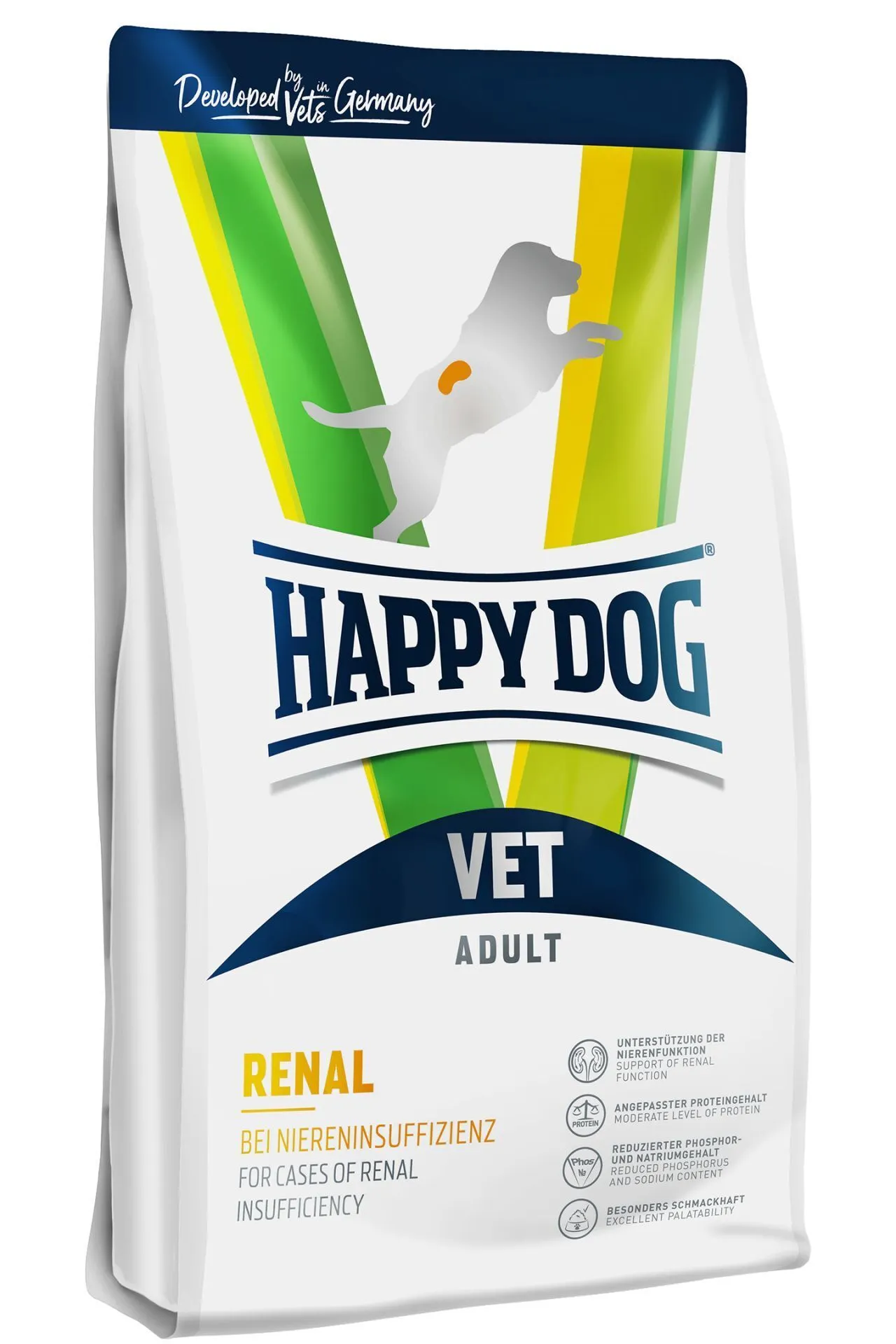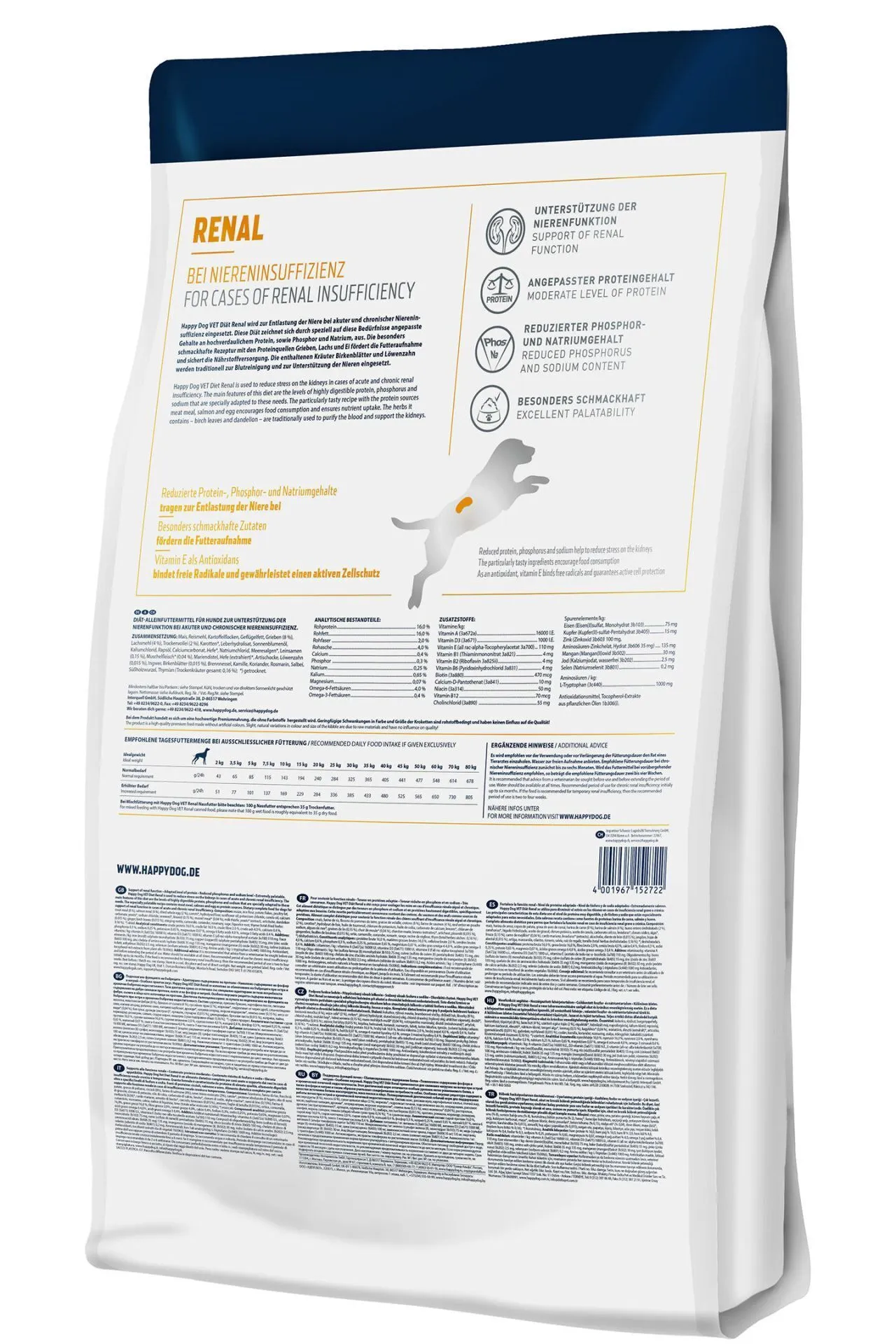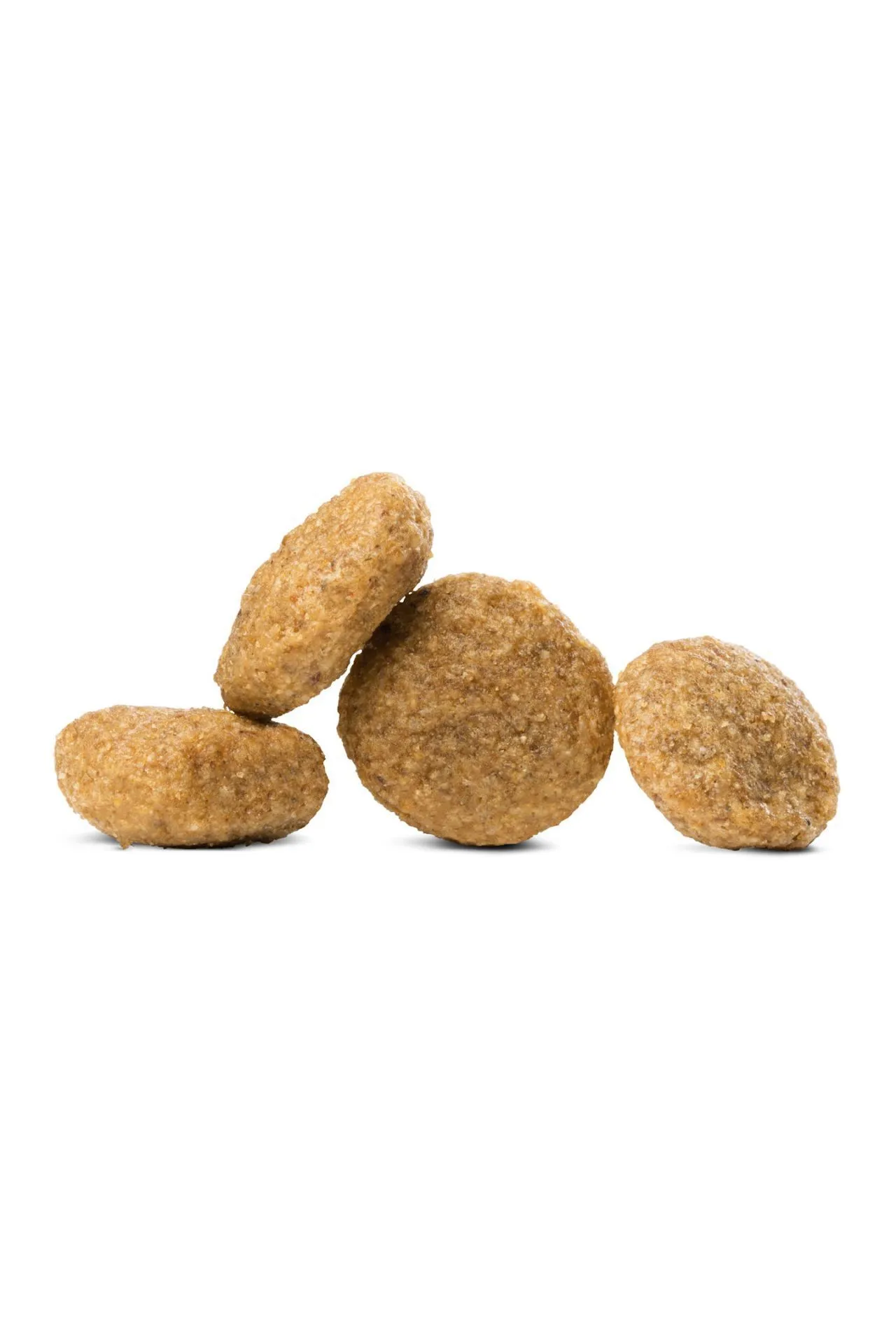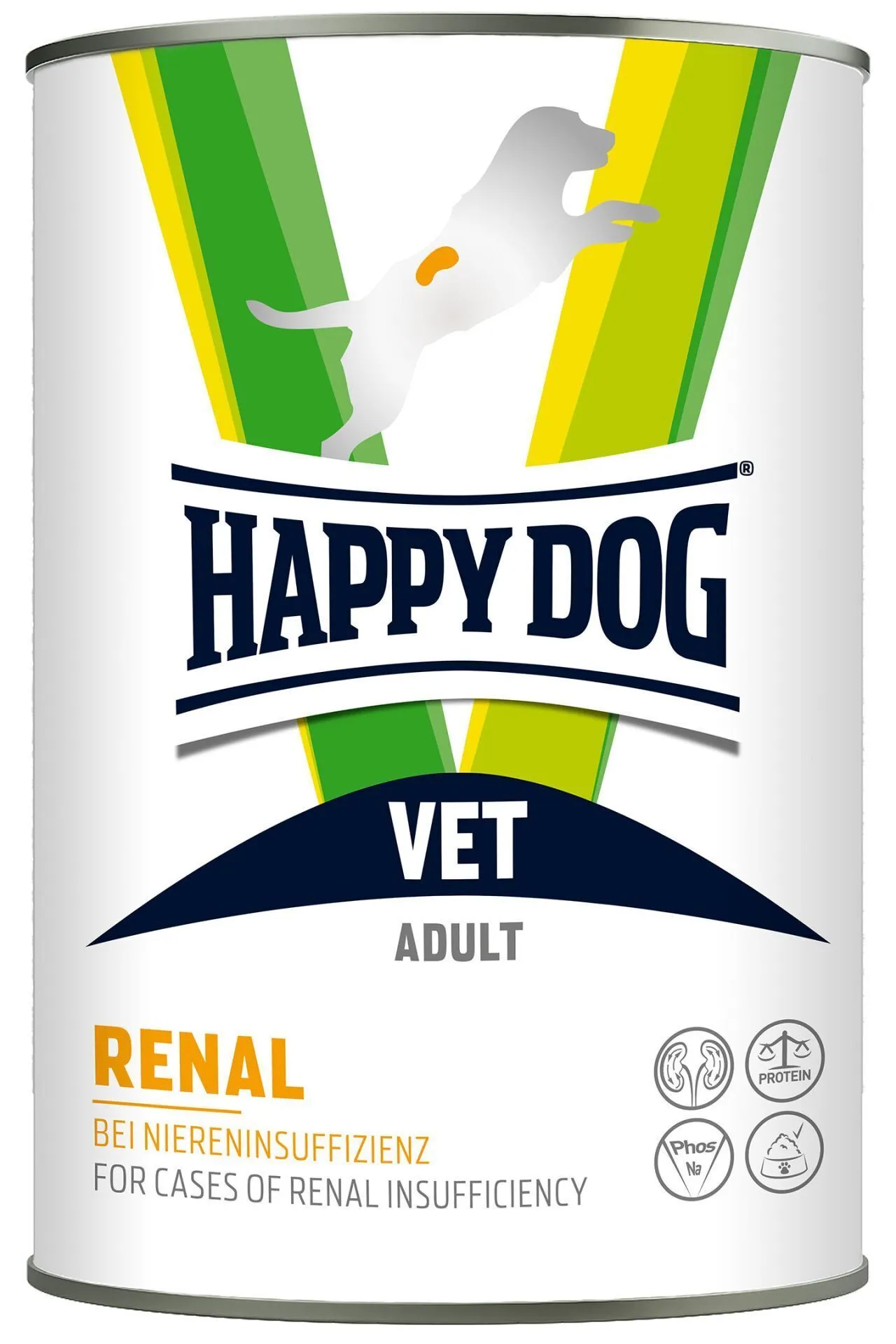When your beloved canine companion is diagnosed with kidney insufficiency, whether acute or chronic, diet becomes a cornerstone of their treatment and overall well-being. A specialized Renal Dog Food is crucial for managing the condition, slowing its progression, and enhancing your dog’s quality of life. This dietary approach aims to reduce the workload on the kidneys, support their function, and ensure your dog receives appropriate nutrition without overburdening their compromised system. For pet parents, navigating the world of veterinary diets can be daunting, but understanding the science behind renal formulas empowers you to make the best choices for your furry friend.
One such veterinary dietary complete feed is Happy Dog VET Diet Renal, specifically formulated to support kidney function in adult dogs. This specially adapted nutrition focuses on precise levels of highly digestible protein, phosphorus, and sodium, all critical elements when managing kidney disease. While it’s essential to follow veterinary advice for any dietary changes, this guide will help you understand the core principles and benefits of a renal diet.
The Science Behind Renal Diets: Key Nutritional Adjustments
Managing kidney disease in dogs primarily involves dietary modifications that alleviate stress on the kidneys. This means carefully controlling certain nutrients that, in excess, can exacerbate kidney damage. Renal diets like Happy Dog VET Diet Renal are expertly formulated to achieve this delicate balance.
Reduced Protein, Phosphorus, and Sodium Content
A hallmark of effective renal dog food is its customized content of protein, phosphorus, and sodium.
- Protein: While essential for muscle maintenance and overall health, excessive protein can lead to a buildup of waste products that the kidneys struggle to filter. Renal diets provide high-quality, highly digestible protein in controlled amounts, ensuring nutritional needs are met without overworking the kidneys.
- Phosphorus: High phosphorus levels are particularly detrimental to dogs with kidney disease, as compromised kidneys cannot excrete it efficiently. This can lead to hyperphosphatemia, which further damages kidney tissue and can cause other health issues. Renal diets significantly reduce phosphorus to protect kidney function.
- Sodium: Reduced sodium intake is vital as it helps manage blood pressure, a common concern in dogs with kidney disease, and can help reduce fluid retention.
These carefully managed levels help to reduce stress on the kidneys, which is paramount in both acute and chronic renal insufficiency.
Enhancing Palatability to Encourage Consumption
Dogs with kidney disease often experience a reduced appetite, making it challenging to ensure they receive adequate nutrition. A critical aspect of a successful renal diet is its palatability. Happy Dog VET Diet Renal boasts a particularly tasty recipe, utilizing protein sources like meat meal, salmon meal, and dried whole egg to encourage food consumption. This focus on taste is vital to ensure dogs eat enough to maintain their weight and energy levels, which can be a common struggle with specialized diets.
It’s important to understand the different types of meat and bones that are suitable for your dog’s regular diet, but remember that for kidney issues, specific veterinary guidance on protein and phosphorus sources is paramount to avoid complications.
 Front view of Happy Dog VET Diet Renal dry food bag, stating "Support for kidney function. Developed by veterinarians in Germany."
Front view of Happy Dog VET Diet Renal dry food bag, stating "Support for kidney function. Developed by veterinarians in Germany."
Antioxidant Support and Herbal Benefits
Beyond the core nutrient adjustments, many renal diets incorporate ingredients that offer additional therapeutic benefits. Happy Dog VET Diet Renal includes Vitamin E, a potent antioxidant that binds free radicals and ensures active cell protection. This is crucial as oxidative stress can contribute to kidney damage. Additionally, the formula contains traditionally used herbs such as birch leaves and dandelion. These herbs are known for their blood-purifying properties and are traditionally believed to support kidney health, offering a holistic approach to managing the condition.
For dogs on a regular diet, understanding what cooked meat is good for dogs can be helpful for homemade treats, but these general guidelines do not apply to a dog requiring a specialized renal diet. Always consult your vet.
Essential Feeding Guidelines and Veterinary Consultation
Administering a renal diet effectively requires adherence to specific guidelines and close collaboration with your veterinarian. This is not a diet to be started without professional advice.
Veterinary Recommendation is Key
Happy Dog VET Diet Renal, like many other therapeutic diets, is classified as a dietary complete feed and is only available on a vet’s recommendation. It is strongly recommended to consult a veterinarian before starting this diet or extending its period of use. Your vet will accurately diagnose your dog’s condition, determine the severity, and tailor a feeding plan specific to their individual needs.
For general feeding, knowing what meat should you not give to dogs is important, but with a renal diet, it’s about what is specifically formulated, not just what to avoid generally.
Exclusive Feeding and Monitoring
For the best therapeutic effect, the renal diet should be fed exclusively. Introducing complementary foods, even in small amounts, can disrupt the delicate balance of nutrients and undermine the diet’s efficacy. If you wish to give any supplementary nutrition, always discuss it with your vet first. Regular monitoring by your veterinarian will also help assess the diet’s effectiveness and make any necessary adjustments based on your dog’s response.
 Close-up image of the back of Happy Dog VET Diet Renal dry dog food packaging, detailing ingredients and feeding recommendations.
Close-up image of the back of Happy Dog VET Diet Renal dry dog food packaging, detailing ingredients and feeding recommendations.
Portioning and Hydration
It’s generally recommended to offer your dog several small meals per day, unless your veterinarian advises otherwise. This approach can be gentler on the digestive system and help maintain more stable nutrient levels throughout the day. The exact amount of food should always be adapted to your dog’s individual metabolism and ideal weight, and your vet can help determine the precise quantity. Crucially, ensure your dog always has access to fresh water, as hydration is particularly vital for kidney health.
For those wondering what types of bones can dogs eat as part of a general diet, it’s essential to remember that such treats are usually not appropriate for dogs on a strict renal diet.
 Crispy, round, brownish dry dog food kibble, loosely piled and appearing appetizing.
Crispy, round, brownish dry dog food kibble, loosely piled and appearing appetizing.
Understanding the Ingredients and Nutritional Profile
A deep dive into the ingredients and analytical components of Happy Dog VET Diet Renal reveals its precise formulation designed to support kidney function.
Key Ingredients
The diet’s base ingredients include maize, rice flour, and potato flakes, which provide easily digestible carbohydrates. Poultry fat contributes healthy fats, while controlled amounts of meat meal and salmon meal serve as the primary, highly digestible protein sources. Dried whole egg further enhances protein quality. Other beneficial ingredients include carrots, sunflower and canola oils, and a blend of herbs like milk thistle, artichoke, dandelion, ginger, birch leaves, and nettle, all selected for their potential supportive roles in kidney and overall health.
If you’re curious about what type of bones can dogs have, remember that a renal diet has strict ingredient controls, making outside additions generally not recommended. Similarly, for what bones can dogs eat raw, this information is for healthy dogs, not those on a vet-prescribed renal diet.
Analytical Components and Additives
The analytical components demonstrate the strict control over crucial nutrients:
- Crude protein: 16.0 % (Controlled for kidney health)
- Crude fat: 16.0 %
- Crude fiber: 2.0 %
- Crude ash: 4.0 %
- Calcium: 0.4 %
- Phosphorus: 0.3 % (Significantly reduced)
- Sodium: 0.25 % (Reduced)
- Potassium: 0.65 %
- Magnesium: 0.07 %
- Omega 6 fatty acids: 4.0 %, Omega 3 fatty acids: 0.4 % (Important for overall health and anti-inflammatory properties)
The diet is also fortified with essential vitamins (A, D3, E, B vitamins) and trace elements (iron, copper, zinc, manganese, iodine, selenium), along with L-tryptophan, an amino acid. These additives ensure comprehensive nutritional support while adhering to the renal-specific limitations. Antioxidants, such as tocopherol-rich extracts, are also included to further protect cells.
 A can of Happy Dog VET Diet Renal wet food, suitable for dogs with renal insufficiency.
A can of Happy Dog VET Diet Renal wet food, suitable for dogs with renal insufficiency.
Conclusion: Supporting Your Dog’s Kidney Health
Navigating kidney disease in dogs requires dedication and informed choices, with specialized renal dog food playing a pivotal role. Diets like Happy Dog VET Diet Renal are scientifically formulated by veterinarians to reduce stress on compromised kidneys through controlled protein, phosphorus, and sodium levels. They also emphasize palatability to ensure consistent food intake and incorporate supportive ingredients like antioxidants and traditional herbs. Always remember that a veterinary diagnosis and recommendation are indispensable before starting or continuing a renal diet. By working closely with your vet and adhering to feeding guidelines, you can provide the best possible support for your dog’s kidney health, helping them lead a comfortable and fulfilling life. Prioritize their well-being by choosing the right nutritional path.
